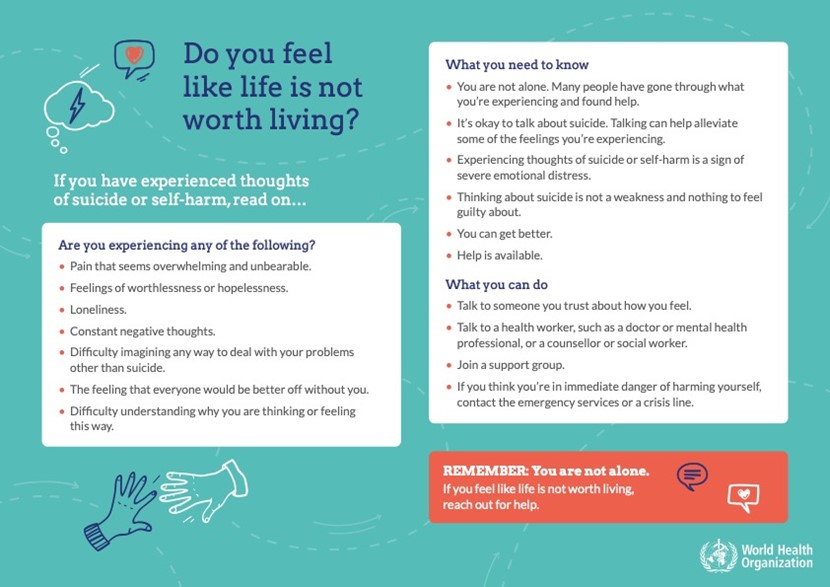What is mental health anyway?
What is mental health anyway?
October is Mental Health Awareness Month and today (10th October) is World Mental Health Day. And I find myself thinking about how we define mental health and what the impact of poor mental health is on our lives.
So, for what it’s worth, here is my take on mental health, a construct that I think is frequently misunderstood. We all have mental health, much like we all have physical health. The term is often used as a substitute for mental health conditions or diagnoses like depression, schizophrenia or borderline personality disorder. According to the World Health Organization, mental health is “a state of well-being in which every individual realises his or her own potential, can cope with the normal stresses of life, can work productively and fruitfully, and is able to make a contribution to her or his community.”
Our mental health is concerned with our emotional, psychological, and social well-being. It relates to how we think, feel, and act. It also helps determine how we handle stress, relate to others, and make choices. Mental health considerations are important at every stage of life, from childhood and adolescence through adulthood. When we understand what mental health is and isn’t we are better able to prevent mental health conditions, and support people who have experienced / are experiencing these conditions to live full and contributing lives.
Many factors contribute to mental health problems, including:
- Biological factors, such as epigenetics
- Life experiences, such as trauma
- Family history of mental health problems
Mental health is a part of what I call ‘whole-person health’ which I think includes:
- Mental health
- Physical health
- Emotional health
- Spiritual health (not the same as religion and might include the activities where you feel most ‘in-flow’
We know – thanks to research in the mental health field – that when our mental health is thriving, we are better able to learn, be creative and productive and have positive social relationships. This has associated impacts to our physical health and ultimately life expectancy. Ultimately, it’s important to remember that mental health is complex – just because someone hasn’t been diagnosed with a mental health condition doesn’t mean they’re thriving, and likewise, people with well-managed mental health conditions can be living and functioning very adaptively.
So why do we need to spend a month focusing on mental health? Well, there are some significant implications to having poor mental health:
- 15% of the world’s population (1.1 billion people) had a mental illness in 2016.
- It is expected that 45% of us will experience a mental illness in our lifetimes.
- 20% of Australians were experiencing a current and chronic mental health or behavioural condition prior to Covid-19. The figures are expected to rise significantly.
- Current treatment options are inadequate: typical treatments work for only about 35% of people with mental illness, and even when they do, most continue to experience some symptoms, and most relapse within the first year or two after treatment stops.
- In Australia, mental illness is the leading cause of non-fatal disease burden, and the third leading cause of total disease burden.
- The direct cost of mental illness in Australia is at least $60 billion annually with indirect costs amounting to $180 billion annually, prior to the Covid-19 pandemic.
One of my biggest motivations in the work that I do, and part of the very foundation of my private practice is the desire to remove the taboo and stigma around what we call ‘mental health’. I believe that we have somehow got into a place where we see physical health in terms of strength and fitness, whilst mental health is view through a lens of dysfunction and illness. I work tirelessly to address this imbalance.
This Mental Health Awareness Month, let’s all be part of the conversation around this aspect of our well-being and do all we can to remove as many barriers to accessing support as possible.
If your mental health needs a helping hand, we have a team of relationship therapists at Thea Baker Wellbeing – please reach out to us at: hello@theabaker.com.au / 03 9077 8194.


